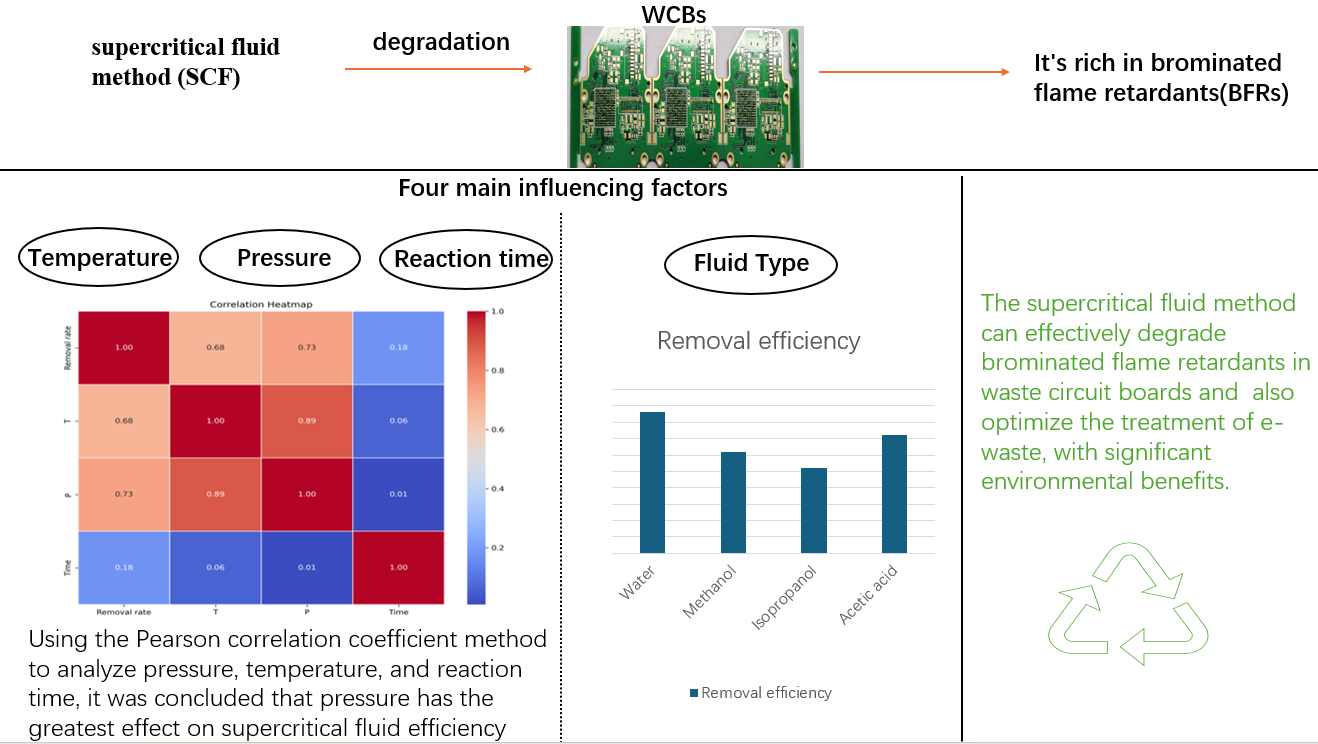
The supercritical fluid (SCF) method is recognized as an environmentally friendly and efficient technology for the degradation of brominated flame retardants (BFRs) in waste circuit boards (WCBs). This study provides a detailed exploration of the SCF definition, the principles of debromination, and the key factors influencing the degradation process. Additionally, the selection process for the optimal supercritical fluid is thoroughly discussed. Comprehensive analysis reveals that temperature, pressure, reaction time, and the choice of fluid significantly impact the degradation efficiency. The study identifies the optimal supercritical fluid and highlights the most critical influencing factors, offering technical support and theoretical guidance for the effective treatment of BFRs in WCBs.
Total file downloads: 53